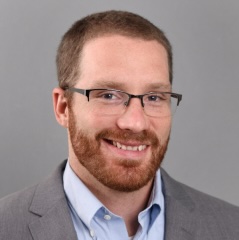Intro to a First-Year College Seminar
Critical Reflections on Living a Flourishing and Fulfilling Life Today
A majority of students take a seminar in the first year of college, a course that is centered on reading and analyzing challenging texts, engaging in discussion and debate, and composing compelling arguments and reflections in writing. Such courses are meant to be rigorous, stretch your abilities, push you to improve, and prepare you for the additional challenges of college academic life. This course is designed to introduce you to this kind of academic environment. Along the way, the instructor will guide you through some demanding readings and offer personalized, meticulous feedback on your writing.
Fall 2025
September 4 ~ December 18
6:00 p.m. ~ 9:00 p.m.
16-week course
For students with an American high school level English ability
Course Content
Introduction
Inundated by economic pressures, increasing environmental collapse, ever-accelerating integration of AI technologies, volatile job markets, and social and political division, people today face unprecedented levels of stress and anxiety and futures fraught with uncertainty. In addition, the ubiquity of social media diverts our attention from pressing questions and establishing meaningful human connections. As many writers and commentators have pointed out, our modern conditions have drastically altered our everyday existence, and a growing sense of dissatisfaction has accompanied these changes. Is this the kind of life we want to live, buffeted by forces beyond our control and subject to the whims of corporations and institutions? How can we flourish amidst such radical, ongoing changes and pressures? What would a meaningful, fulfilling life look like in the modern environment?
In the first two modules, we’ll examine some critiques put forth by a contemporary philosopher and a social critic. For the remaining modules, we’ll look at how some writers across history have approached the question of a flourishing life and grappled with its concomitant issues (e.g. work, rest/leisure, reflection, etc.). Modules also include various media to supplement our discussions and understandings of the primary readings. Throughout the term, we’ll be working our way through A Brave New World, a novel offering a dystopian vision of technology, progress, and social control, which raises compelling questions related to our course themes.
Course Outcomes
At the conclusion of this course, students will be able to:
- Read and appreciate college-level course materials
- Describe how the issue of a flourishing life has been problematized and discussed
- Analyze both fiction and non-fiction writings to discern key arguments and themes
- Clearly communicate an argument in writing, drawing on evidence gleaned from both various written sources
- Revise their writing according to feedback
- Critique arguments, discerning their strengths and weaknesses, and respond both orally and in writing
Course Assignments
Discussion questions
- Due: Week 1 of each module
-
- Prior to the first meeting for each module, students will be asked to prepare three questions and post them to a shared document on Google Classroom. The instructor will also add and/or revise questions in this shared document. These questions will fuel our discussions during weekly class meetings.
- Answers to these questions should not be simplistic yes/no or content descriptions, but should lead to deeper, extended analyses and reflections that connect to broader questions and themes and/or other readings in the class. The questions should engage quotes or passages in our readings.
Discussion board posts
- Due: Week 1 of each module
-
- The instructor will post several questions on Google Classroom. Some will be more specific, guiding your reading and helping you to prepare for class discussion and activities. Others may bring together the readings and ideas for the module as a whole. You will be asked to respond to at least two of the questions (200+ words each).
Discussion board responses
- Due: Week 2 of each module
-
- To continue discussion beyond our class meetings, you will be asked to respond to two classmates’ discussion board posts on Google Classroom. The posts (150+ words each) should reflect the 3CQ model (contain a compliment, comment, connection, and question). The instructor will also be engaged in the discussion and will provide further prompts and specific, timely feedback on your posts.
Essays
- Due: Week 2 of each module (draft); Week 3 of each module (first revisions); Week 1 of the following module (final)
-
-
- These essays will address specific questions and issues covered in the readings and class meetings. Questions will primarily prompt you to incorporate a discussion of course materials to present an argument, but they may also encourage personal reflection.
- Books, papers, newspaper articles, etc. all go through rigorous editing processes and changes. We will follow a similar process in each module. Your first draft isn’t expected to be perfect, but it should be sufficiently edited, coherent, and with limited grammatical mistakes. After the initial draft, you will work to improve your essays through two rounds of revisions, incorporating the instructor’s feedback on how to do so. The essay for module 5 will be an exception, limited to only one round of revision due to the schedule. Drafts and revisions will be posted to Google Classroom.
-
Oral presentations
- Due: Week 3 of each module
-
- You will be asked to give a short in-class presentation (no more than five minutes), in which you describe the main ideas and arguments of your essay. The instructor and your classmates may offer questions at the end of
- The presentation is meant to be less formal and encourage more spontaneous, casual periods of extended dialogue. While preparation will be necessary, simply reading from a script will be strongly discouraged.
Instructor
Dr. Tyler Feezell
CONTACT US
Feel free to reach out to us through the channels below, or simply fill out this form and a representative will be in touch.

@englist
(02) 2736-6829
Taipei City, Da’an District, Anhe Road, Sec. 1, No. 137, 4th Floor

